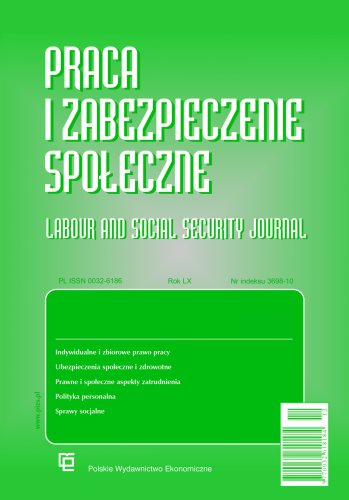Labour and Social Security Journal 09/2023
ISSN: 0032-6186
Pages: 64
Publication date: 2023
Place publication: Warszawa
Binding: paperback
Format: A4
Publication date: 2023
Place publication: Warszawa
Binding: paperback
Format: A4
DOI: 10.33226/0032-6186.2023.9.2
JEL: K31
DOI: 10.33226/0032-6186.2023.9.3
Dr Sonia Buchholtz , Dr hab. Patrycja Kowalczyk-Rólczyńska, Dr Radosław Kurach, Dr hab. Joanna Rutecka-Góra
JEL: H55, I30, J38
DOI: 10.33226/0032-6186.2023.9.4
JEL: K31
DOI: 10.33226/0032-6186.2023.9.5
JEL: K31
DOI: 10.33226/0032-6186.2023.9.6
JEL: K31
DOI: 10.33226/0032-6186.2023.9.7
JEL: H55, I18, I38, J48, K31
DOI: 10.33226/0032-6186.2023.9.8
JEL: K31
| Odbiór osobisty | 0 € |
| Kurier Inpost | 4 € |
| Kurier FedEX | 4 € |
| Inpost Paczkomaty | 4 € |
| Free delivery in Reader's Club | from 47 € |

